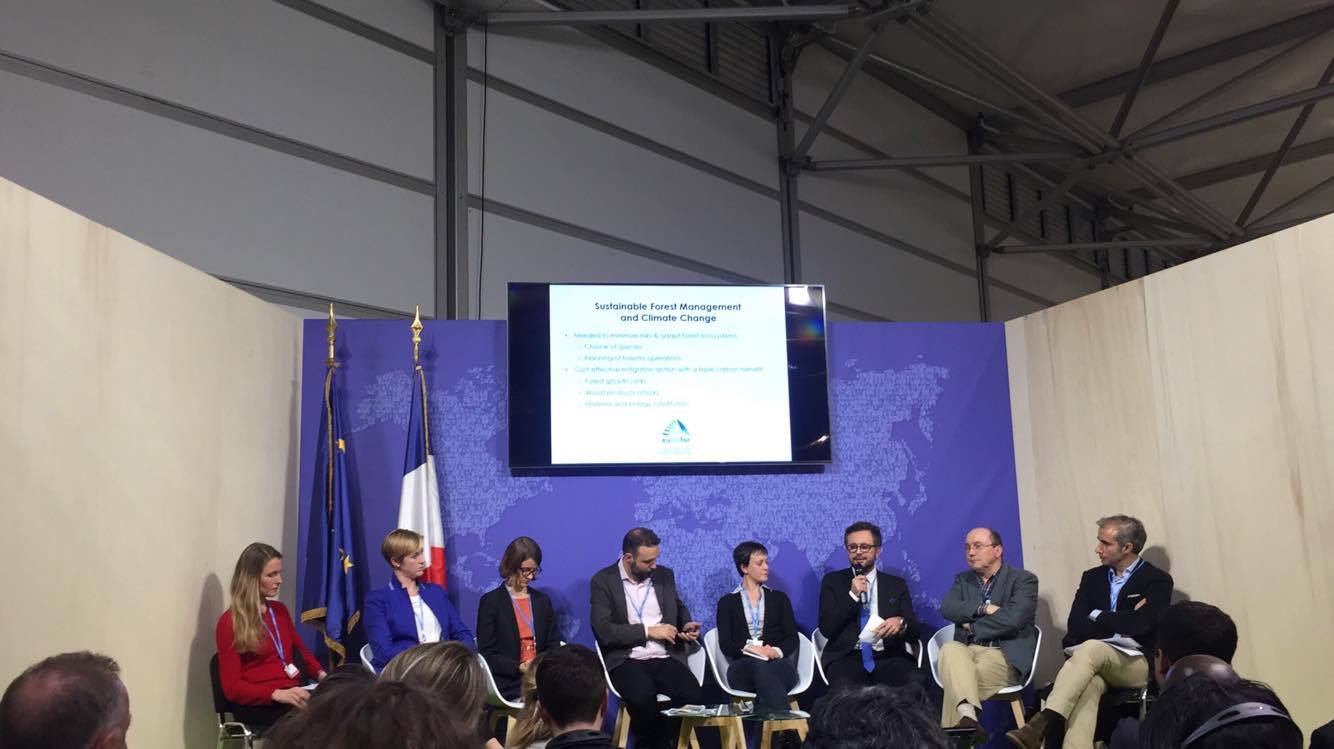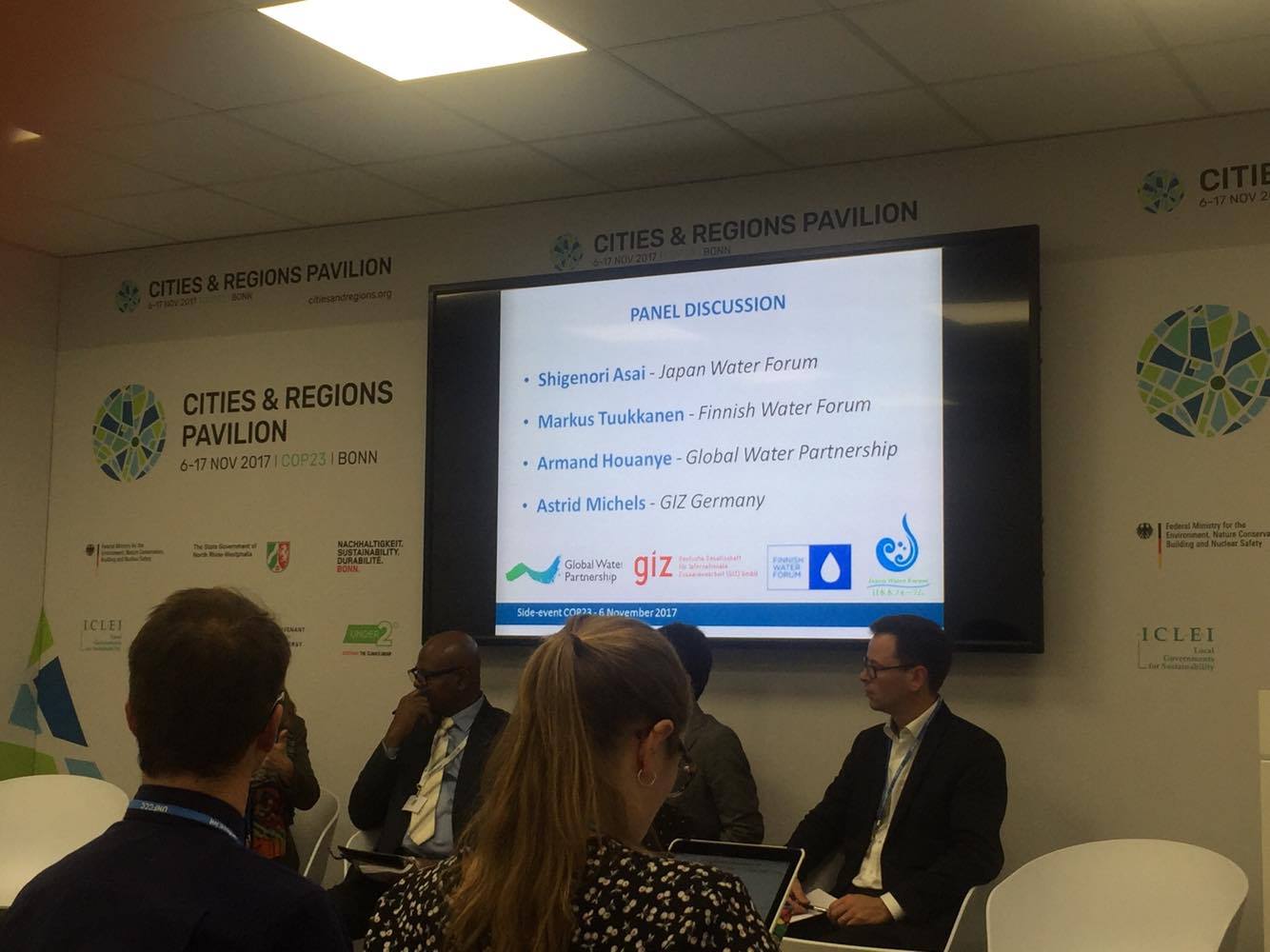We’ve had a really great first two days. Here’s a bit more about it…
On the first day I attended a side event about achieving a low carbon, low energy water sector. The topics of discussion included the scaling up from project to systematic approaches, the importance of science in supporting adaptation and mitigation under the Paris Agreement, using a variety of renewable energy sources to stay below the 1.5°C target, imagining our world with +4°C of warming, and coping with the impacts of climate change on water for sustainable development goal 6.
On the second day I attended several side events: ‘Achieving a just transition: climate change mitigation success stories from around the globe’, ‘Is nuclear energy part of the solution to fight climate change?’, and ‘Sustainable forest management in the face of climate change: What challenges? What actions?’.
Sustainable forest management in the face of climate change: What challenges? What actions?
The discussion panel for this event consisted of representatives from Canada and Europe, who began the session by providing some background relating to the various institutions to which they are affiliated. They discussed a range of topics relating to the sustainability of forestry, including the need to minimise risk and to adapt forest ecosystems to the impacts of climate change (e.g. decisions relating to the choice of species and forestry operation techniques), cost effective mitigation actions with ‘triple carbon’ benefits (forest growth, wood products, and material and energy substitution), gaps in current knowledge and opportunities for research, ideas for innovation, and suggestions for the implantation of these ideas. The session ended with the panel discussing their country’s respective forestry policies.
 A low carbon, low energy water sector: scaling up from project to programmatic approaches
This event about was mitigation opportunities in the urban water cycle, waste water as an energy source, the expansion of waste water treatment capacity, energy efficient reservoir pumps, and sludge management. Some inspiring case studies illustrated innovative technologies and business models, as well as some lessons learned, and best practices from pioneering utilities in both developed and emerging economies.
A low carbon, low energy water sector: scaling up from project to programmatic approaches
This event about was mitigation opportunities in the urban water cycle, waste water as an energy source, the expansion of waste water treatment capacity, energy efficient reservoir pumps, and sludge management. Some inspiring case studies illustrated innovative technologies and business models, as well as some lessons learned, and best practices from pioneering utilities in both developed and emerging economies.
 Climate change directly affects water management and water security in a number of ways, through impacts on the availability and quality of water, and the increased burden on cities to maintain water security. While water services have to cope with the impacts of climate change, they also contribute to global emissions as a result of energy consumption and nitrous oxide and methane emissions in waste water systems. Water pumping, treatment and water distribution use up to 8% of global energy generation.
My first two days at COP23 have provided the opportunity to improve my understanding of the value of forests for sustainability, and I am proud of the work that I have been doing!
Climate change directly affects water management and water security in a number of ways, through impacts on the availability and quality of water, and the increased burden on cities to maintain water security. While water services have to cope with the impacts of climate change, they also contribute to global emissions as a result of energy consumption and nitrous oxide and methane emissions in waste water systems. Water pumping, treatment and water distribution use up to 8% of global energy generation.
My first two days at COP23 have provided the opportunity to improve my understanding of the value of forests for sustainability, and I am proud of the work that I have been doing!
 Burcu Berk is from Turkey, and is currently a MSc student in the faculty of Forestry at the Life Science University in Prague. She is particularly interested in water resource management, water quality, and watershed management.
]]>
Burcu Berk is from Turkey, and is currently a MSc student in the faculty of Forestry at the Life Science University in Prague. She is particularly interested in water resource management, water quality, and watershed management.
]]>